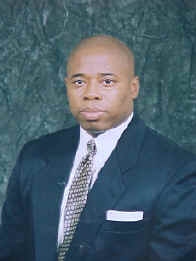Quality
Of Life Crimes
On Saturday, February 5th, I participated in a forum held by
an
African-American student organization in St. John's University Law School. Former
US Attorney Zachary Carter, Kings County District Attorney Charles Hynes, and
N.Y.S. Attorney General Elliot Spitzer were also panelist. At the conclusion
of the event one of the law school students approached me and asked for my
advice regarding her brother’s arrest for drinking a can of beer in public.
After questioning her I discovered that the arrest was not for drinking beer,
but for having an arrest warrant due to a failure to pay a previous issued
summons for riding his bicycle on the sidewalk without wearing a helmet.
She did not believe her brother’s story and felt that he was hiding the true
reasons why he was arrested. She stated, "they don’t give people
arrest warrants for not paying a bicycle summons, do they?"
Her question educated me that although many African-Americans in the country
have heard of the famous crime fighting strategy called "Quality of Life", so few really understood what it is all about. This form of
policing was born out of a concept called "Broken Windows."
It uses a dilapidated building as an analogy for a crime infested community and
equates a broken window to a minor condition in that community. The belief
is that if you allow one window in a building to go un-repaired then eventually
the entire building will become neglected and the residents will be engulfed in
a feeling of anarchy. To prevent this from occurring you immediately
repair the window.
It is a fancy way of saying look after the little things
before they grow into big ones. The nation’s law enforcement community
equated this concept to how they should address small nuisance behavior before
it turns into major
crimes. From afar this tactic looks simple and brilliant. As I
stated, from afar when you look closely at this national crime fighting strategy
you begin to realize how it has been abused.
The abuse comes to play when law enforcement organizations use the knowledgeable
skills of criminologist and sociologist to identify behavior that is associated
with a particular group in society. It has long been known that there are
certain anti-sociable actions of young people that
border between illegal behavior and youthful mischief. Historically law
enforcement officers corrected these acts either verbally, with a summons or
some form of juvenile report. The benefit of these corrective measures is that
they did not leave a permanent blemish on a person’s record. Unfortunately
intertwined in the large number of innocent youthful mischief are a small
percent of young people that commit serious criminal acts. This fact
challenged the nation’s law enforcement community. The question became
how does one find the serious offenders from among the young people who are
merely living out the normal mischief that is associated with youthful behavior.
The answer to the question came via the "Quality of life" crime
fighting strategy.
Through this initiative the mischief behavior of young people, particularly
those of color, was identified and no longer treated as nuances behavior but as
criminal behavior. Acts such as urinating in public, drinking beer in
public, riding a bicycle on the sidewalk, playing loud music, etc. became
grounds for an arrest. This allowed the police to gather up large numbers
of young people and found in the mist of the group were those small numbers of
criminals. On the surface, it appeared as though they were addressing the
small matters before they became large ones.
There were two major problems with this act. The first was that it was not
carried out throughout every community in the country and the other was that an
enormous number of young people now have criminal records that will follow
them for the rest of their lives. Both of these facts have serious
implications. During my column next month, I will discuss these
implications and what we must do to rectify the problems that stem from them.
3/1/02
To post your comments
on the discussion board click on the notepad. 
TOP
OF PAGE